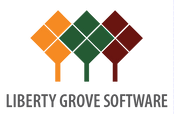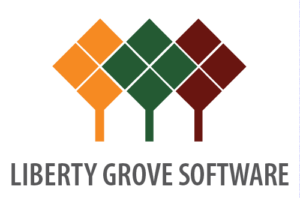Streamlining Raw Materials in the Food and Beverage Industry: How an ERP Can Help

Streamlining raw materials in the Food and Beverage industry is a complex process that depends on various factors.
Given the time-sensitivity of many raw materials and finished products, manufacturers and distributors must perform processing and product-to-market tasks within specific deadlines or risk losing considerable ROI.
In addition, legal restrictions necessitate that particular quality standards be met or products recalled from consumer distribution.
- The Food and Beverage industry is an excellent example of how modern ERP systems can efficiently solve raw material expiration concerns. In this industry, the quality and safety of raw materials are critical to ensuring that the finished products satisfy the highest requirements.
These shifting parts make managing food and beverage supply chains complex and challenging.
ERP – Your Raw Materials Streamlining Genie

Implementing an Enterprise Resource Planning (ERP) software solution like Liberty Grove's DynamicsFoodERP, powered by Microsoft Dynamics 365, designed for the Food and Beverage industry and capable of managing these complicated components, can bring significant improvements.
It can ensure speed when possible while exercising due diligence where necessary, streamlining the process, and alleviating pain points in raw materials handling.
A cloud-based system with modern functionality and dynamic features enables you to solve the challenges of Food and Beverage supply chain management by offering an accurate, real-time overview of your activities.
The enhanced visibility makes disruptions easier to detect and avoid and empowers you with better reporting, leading to more informed decision-making. With the right software solution, you can control your supply chain.
Here’s how an ERP solution can help:
- Optimize Inventory Management - An ERP solution allows you to track and change raw material quantities in real-time. It also lets you easily control inventory and prevent overstocking or shortages in your food production firm. Furthermore, robust forecasting systems can estimate future demand and enable preemptive planning.

- Improve efficiency, quality, and compliance - Raw material management is essential to quality and safety in food and beverage processing, regardless of the product.
- Overcome the challenges of raw material expiration - Raw material expiration presents a challenging dilemma for food and beverage businesses.
This multi-faceted issue results from a variety of factors, including:
- Inventory management: Managing a diverse range of raw materials can be challenging. Without efficient inventory control, workers can forget, misplace, or incorrectly store goods, resulting in spoilage and waste.
- Supplier dynamics: Suppliers' timely delivery of raw materials is critical. Delivery delays can reduce the shelf life of these materials, putting unnecessary pressure on manufacturers.
- Production schedule: Unexpected disruptions in production can result in underutilized raw materials, forcing businesses to dump expired inventory and incur significant losses.
- Regulatory compliance: The food and beverage business is heavily regulated, with stringent restrictions on using expired raw ingredients. Noncompliance can lead to fines, product recalls, and reputational damage.
An ERP Solution Extends the Shelf Life of Raw Materials
Why? It’s effective for dealing with raw material expiration challenges.
An ERP system enables real-time visibility into inventory quantities, precise locations, and expiration dates. It allows producers to plan production more effectively and ensure materials are used before expiration.
An ERP system offers the following advantages for monitoring raw material expiry:
- Demand forecasting: ERP software includes demand forecasting, which allows manufacturers to coordinate production plans with projected market demand. It avoids the risk of overstocking resources that may eventually be unused.

- Quality control: ERP solutions have quality management modules, which enable stringent quality control procedures during material acceptance. That guarantees that only materials that fulfill high-quality criteria are approved, lowering the likelihood of employing inferior or expired supplies.
- Lot traceability and tracking: ERP systems allow batch and process manufacturers to precisely track the use of specific materials in each product batch. In the event of a product recall or quality issue, traceability provides for quickly identifying and removing impacted products, reducing risks and expenses.
- Regulatory compliance: ERP software frequently contains compliance tools that help meet strict food safety requirements and industry standards. An ERP can automatically detect or limit the use of expired goods, assisting firms in adhering to industry rules and avoiding compliance-related issues.

- Real-time visibility: An ERP provides a comprehensive perspective of raw material inventory, including expiration dates, enabling managers to make informed, real-time decisions that protect the organization and the customer.
- Supplier collaboration: Facilitates communication with suppliers to ensure timely delivery. ERP systems provide seamless contact with suppliers, allowing for proactive control of material orders and deliveries. This proactive strategy avoids delays, which could reduce the shelf life of materials.
Raw material expiration issues are a perennial problem for batch and process manufacturers, particularly in the food and beverage industry.
Fortunately, cloud-based ERP software has become an effective solution to these difficulties. ERP systems help manufacturers increase raw material shelf life by providing real-time inventory management, demand forecasting, supplier collaboration, quality control, traceability, and compliance support.
Conclusion
An ERP solution eliminates waste, lowers the danger of employing expired components, improves product quality, and protects profits and reputation. In today's brutally competitive market, where efficiency and compliance are non-negotiable, food and beverage firms cannot afford to overlook the benefits of ERP software for properly managing raw material expiration.
Is Your Food and Beverage Operation Effectively Streamlining Raw Materials?
Liberty Grove can help you use many tools and services to help you achieve a successful Food and Beverage Cloud ERP deployment that will improve your organization's ability to streamline your raw materials, reduce waste, and achieve an optimal ROI.
Contact Liberty Grove for a complimentary consultation on how DynamicsFoodERP can help you maximize your raw materials and protect your products throughout the supply chain.
Related reading:
Food Traceability | How Cloud ERP Can Help
Compliance Matters: 8 Ways ERP Can Help Food and Beverage Manufacturers
Best 10 Reasons to Move Your On-Premises ERP to the Cloud
About the author
Liberty Grove Software is an established Microsoft Partner that focuses on providing customers with sales, service, and support for Microsoft Dynamics 365 Business Central/NAV solutions and training and upgrades.
Over more than 25 years, Liberty Grove has assisted hundreds of customers with businesses ranging from small to mid-sized to Microsoft Partners in implementing, training, customization, and upgrading Microsoft Dynamics ERP solutions.
The organization is one of only a few companies worldwide that Microsoft recognizes as qualified to provide Business Central/NAV Upgrade Service Centers.

